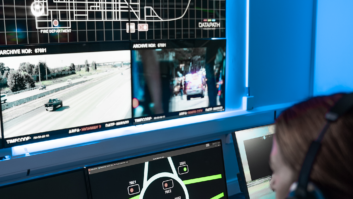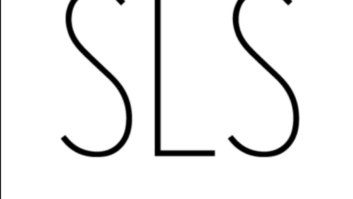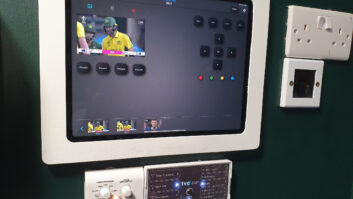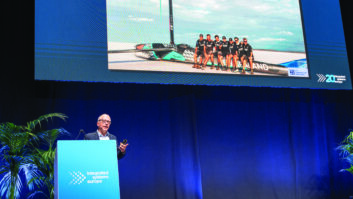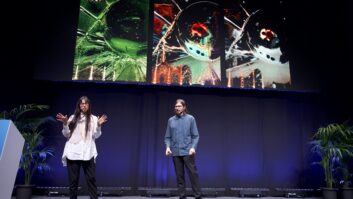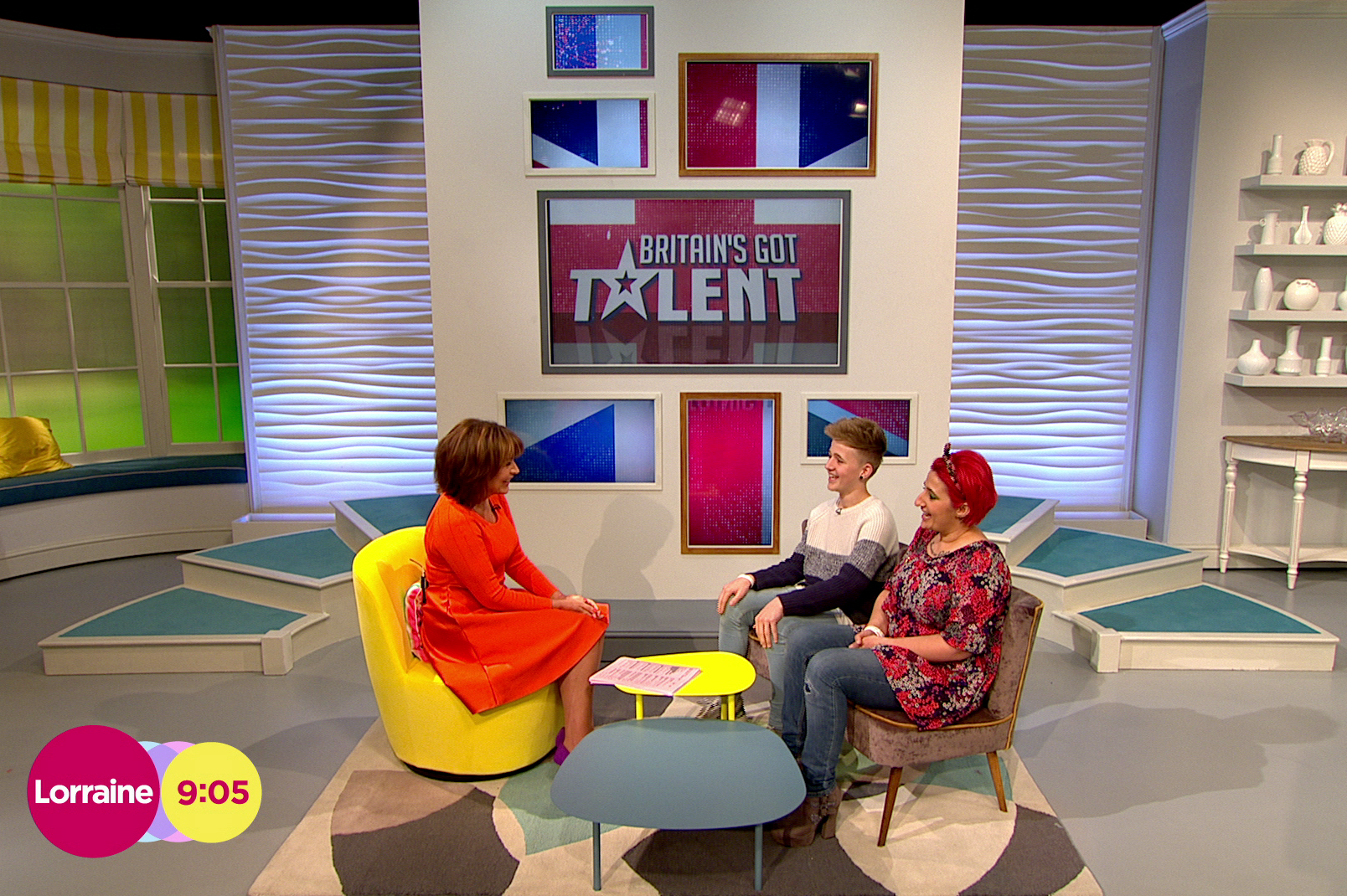
Part of a new look for ITV’s Lorraine television programme centres on a seven-screen videowall that uses two x4 display wall controllers from multi-screen graphics technology company Datapath.
“We had an exciting chance in April to give the Lorraine programme a fresh new look,” explained Richard Jack, studio director for the Lorraine show. “As a result we sat down with our set design team and started to generate ideas. We wanted a look that felt comfortable, stylish and homely. One of the suggestions was to have a selection of photo frames on the wall housing pictures of [presenter] Lorraine [Kelly]’s family, friends and special moments. It was then that we had the idea of ‘mirroring’ the photo frames on another wall with seven plasma screens which could be used to show features and for Lorraine to interview guests.”
Lorraine is the weekday morning news, lifestyle and entertainment show for ITV, which airs on Monday to Friday from 08:30 until 09:25, following Good Morning Britain. Produced by ITV Studios, the Lorraine show previously shared the use of an 8 x 3 videowall arranged in a traditional rectangular array, but the thinking was different for the new look set.
“We could have used the same configuration but the original videowall was designed to be ‘newsy’, so it lacked the homely feel we wanted for the redesign,” said Jack. “The new videowall had to appear more organic and natural, and less corporate.”
The final design was a seven-screen plasma array arranged as though they were photo frames on the wall, in various sizes and orientations. Jack wanted to run any live source through the screens. Rather than simple video playback, this meant the system needed to interpret other studio sources straight to the plasma screens in real time. Acting as “a live processor” the selected technology would need to take the feed, split it, and convey it to the relevant screens.
“Although it’s probably beyond my usual level of detail, I found a number of potential solutions on the internet, including the Datapath x4, which looked ideal for our application,” he said. “Other ideas and products were proposed, but when we drilled down they weren’t quite right. As a result, I sought assurance from Datapath that the x4 was the way to go… and so it proved.”
“Although there are seven screens we didn’t have seven playback mechanisms – we had to drive from a single source,” he added.
Having decided to acquire two Datapath x4 display wall controllers, the AV integrator set about configuring the system. As a process, the system is fed from the studio with 1080i (interlaced) signal before conversion to 1080p (progressive) using a DataVideo DAC-70 up/down/cross converter. This in turn is converted via a Kramer FC-332 into HDMI format before being output as two identical feeds into the two x4 display wall controllers.
“We have seven images in one frame – which we call the ‘polyframe’ – with the x4 controllers programmed to take relevant parts of the image and send them to the screens in the Lorraine studio. To the naked eye it’s not ultra-high resolution, but when we put a camera on it we only get 1920 x 1080 pixels anyhow, so it looks fine.”
Ultimately the project has proved highly successful, with the new video wall used extensively since Lorraine’s new set was first broadcast to the viewing millions in April 2014. Moreover, the project is also a huge triumph from a budget perspective.
“The videowall started out as just a sketch and was never in the budget for the new set design,” says Richard. “As a result, it had to be created for as little as possible. We are extremely pleased to say that we managed to acquire all the screens and video processing technology for an amazingly low total cost. The Datapath x4 controllers have therefore proved an extremely cost-effective solution for what we consider to be a quality outcome.”
